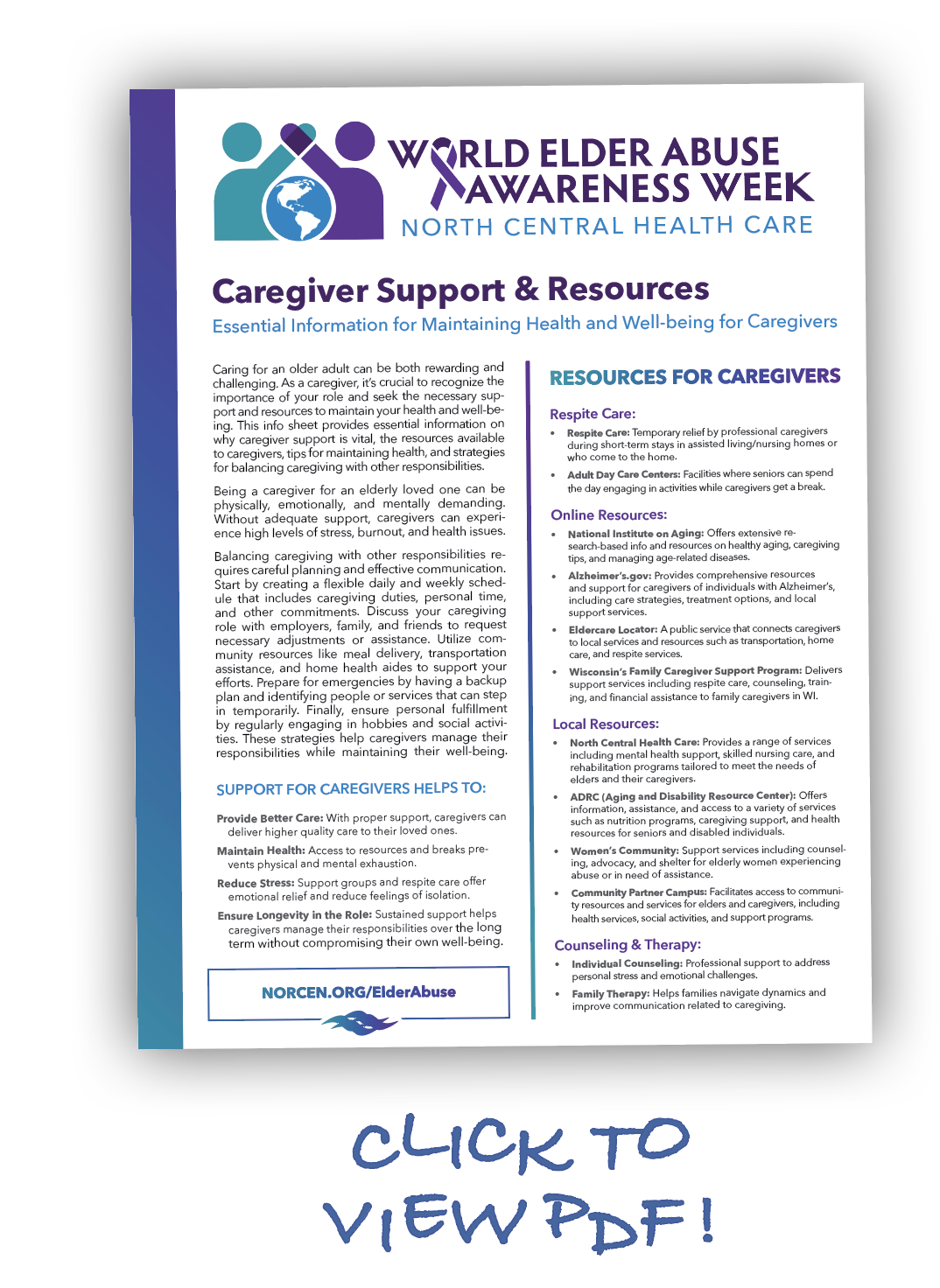Caregiver Support & Resources
 Essential Information for Maintaining Health and Well-being for Caregivers
Essential Information for Maintaining Health and Well-being for Caregivers
Caring for an adul can be both rewarding and challenging. As a caregiver, it’s crucial to recognize the importance of your role and seek the necessary support and resources to maintain your health and well-being. This info sheet provides essential information on why caregiver support is vital, the resources available to caregivers, tips for maintaining health, and strategies for balancing caregiving with other responsibilities.
Being a caregiver for an elderly loved one can be physically, emotionally, and mentally demanding. Without adequate support, caregivers can experience high levels of stress, burnout, and health issues.
Balancing caregiving with other responsibilities requires careful planning and effective communication. Start by creating a flexible daily and weekly schedule that includes caregiving duties, personal time, and other commitments. Discuss your caregiving role with employers, family, and friends to request necessary adjustments or assistance. Utilize community resources like meal delivery, transportation assistance, and home health aides to support your efforts. Prepare for emergencies by having a backup plan and identifying people or services that can step in temporarily. Finally, ensure personal fulfillment by regularly engaging in hobbies and social activities. These strategies help caregivers manage their responsibilities while maintaining their well-being.
Support For Caregivers Helps To:
- Provide Better Care: With proper support, caregivers can deliver higher quality care to their loved ones.
- Maintain Health: Access to resources and breaks prevents physical and mental exhaustion.
- Reduce Stress: Support groups and respite care offer emotional relief and reduce feelings of isolation.
- Ensure Longevity in the Role: Sustained support helps caregivers manage their responsibilities over the long term without compromising their own well-being.
Resources for Caregivers
Respite Care:
- Respite Care: Temporary relief by professional caregivers during short-term stays in assisted living/nursing homes or who come to the home.
- Adult Day Care Centers: Facilities where seniors can spend the day engaging in activities while caregivers get a break.
Online Resources:
- National Institute on Aging: Offers extensive research-based info and resources on healthy aging, caregiving tips, and managing age-related diseases.
- Alzheimer’s.gov: Provides comprehensive resources and support for caregivers of individuals with Alzheimer’s, including care strategies, treatment options, and local support services.
- Eldercare Locator: A public service that connects caregivers to local services and resources such as transportation, home care, and respite services.
- Wisconsin’s Family Caregiver Support Program: Delivers support services including respite care, counseling, training, and financial assistance to family caregivers in WI.
Local Resources:
- North Central Health Care: Provides a range of services including mental health support, skilled nursing care, and rehabilitation programs tailored to meet the needs of elders and their caregivers.
- ADRC (Aging and Disability Resource Center): Offers information, assistance, and access to a variety of services such as nutrition programs, caregiving support, and health resources for seniors and disabled individuals.
- Women’s Community: Support services including counseling, advocacy, and shelter for elderly women experiencing abuse or in need of assistance.
- Community Partner Campus: Facilitates access to community resources and services for elders and caregivers, including health services, social activities, and support programs.
Counseling & Therapy:
- Individual Counseling: Professional support to address personal stress and emotional challenges.
- Family Therapy: Helps families navigate dynamics and improve communication related to caregiving.
Additional Resources
Guardian of the Person | A Checklist to Get Started
Guardian of the Estate | A Checklist to Get Started
Guardian of the Person | Access to the Ward's Health Care and Treatment Records